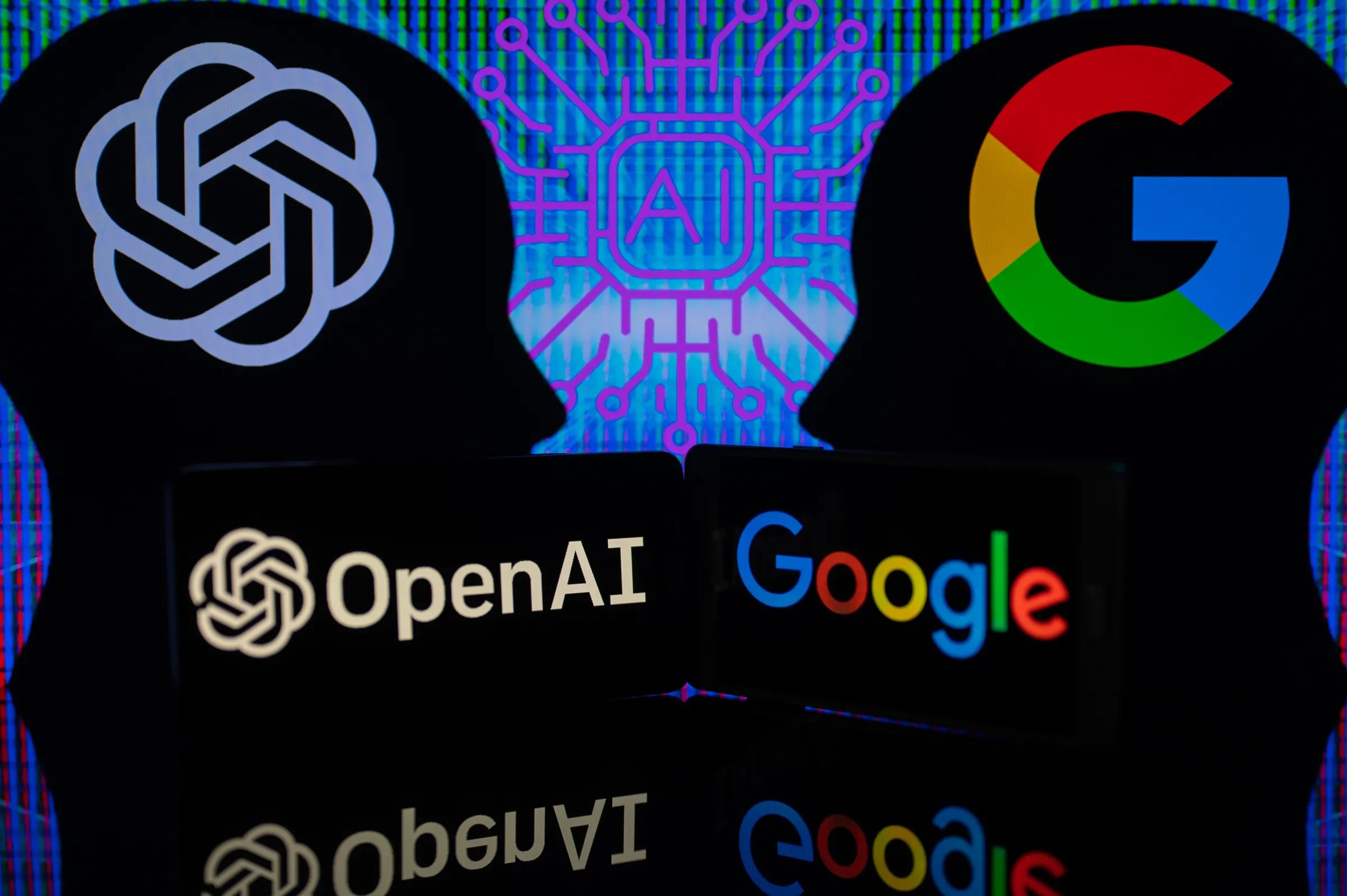Voice Assistant Development Revolutionized: OpenAI's New Tools

Table of Contents
Enhanced Natural Language Processing (NLP) Capabilities
OpenAI's contribution to voice assistant development is most evident in its significantly enhanced natural language processing capabilities. These advancements are transforming how voice assistants understand, interpret, and respond to user requests, leading to more natural and engaging interactions.
Improved Speech-to-Text Conversion
OpenAI's latest models boast remarkable improvements in speech-to-text conversion accuracy and efficiency. This translates to:
- Reduced error rates: Significantly lower rates of misinterpretations and transcription errors, leading to more reliable voice commands.
- Improved handling of accents and dialects: Enhanced ability to accurately transcribe speech from diverse linguistic backgrounds, expanding accessibility and inclusivity.
- Better understanding of contextual nuances: The ability to interpret the meaning of speech within its context, leading to more accurate and relevant responses.
Specific OpenAI tools contributing to these advancements include Whisper, a robust speech recognition system, and various fine-tuned GPT models designed for improved transcription accuracy. These models leverage vast datasets and advanced algorithms to achieve unparalleled levels of accuracy and understanding.
More Natural and Engaging Dialogue Management
Beyond accurate transcription, OpenAI's tools are fostering more human-like interactions in voice assistants. This is achieved through:
- Contextual awareness and memory: Voice assistants can now maintain context across multiple turns of a conversation, remembering previous interactions and tailoring responses accordingly.
- Proactive assistance and anticipation of user needs: OpenAI-powered assistants can anticipate user needs based on context and proactively offer relevant information or assistance.
- Improved handling of complex or ambiguous queries: The ability to interpret and respond to nuanced, multi-faceted, or ambiguous user requests, showcasing a higher level of conversational intelligence.
These advancements are largely powered by OpenAI's GPT models, which excel at understanding and generating human-like text. Their adaptability and contextual understanding are key to creating truly engaging and helpful voice assistants.
Simplified Development Process and Reduced Time-to-Market
OpenAI's tools are not only improving the quality of voice assistants but also dramatically simplifying the development process, making sophisticated AI more accessible.
Pre-trained Models and APIs
OpenAI provides pre-trained models and user-friendly APIs that streamline the development process considerably. This results in:
- Reduced development time and costs: Developers can leverage pre-built models, significantly reducing the time and resources required for training custom models from scratch.
- Easy integration with existing platforms and applications: OpenAI's APIs allow seamless integration with various platforms and applications, enabling faster deployment and wider reach.
- Examples of specific APIs and their functionalities: OpenAI's Speech-to-Text and Text-to-Speech APIs, alongside their language models, offer a comprehensive suite of tools for developers to build and deploy robust voice assistants.
Comparing traditional methods requiring extensive data collection, model training, and optimization, OpenAI's approach represents a considerable leap forward, accelerating innovation and fostering a more inclusive developer community.
Customizable and Adaptable Solutions
OpenAI’s tools offer a high degree of flexibility, allowing developers to tailor voice assistants to specific needs and applications. This customization includes:
- Domain-specific training and fine-tuning options: Developers can fine-tune pre-trained models with specific data relevant to their application's domain, enhancing accuracy and performance.
- Customization of personality and voice characteristics: The ability to shape the voice assistant's personality and vocal characteristics, aligning it with the brand's identity or user preferences.
- Integration with diverse data sources and platforms: Easy integration with various data sources and platforms, enabling the development of more comprehensive and context-aware voice assistants.
Ethical Considerations and Responsible AI in Voice Assistant Development
The rapid advancements in voice assistant technology necessitate a careful consideration of ethical implications. OpenAI acknowledges this responsibility and actively works to mitigate potential risks.
Bias Mitigation and Fairness
Addressing biases in AI models is crucial for responsible AI development. OpenAI is committed to:
- Data diversity and representation: Employing diverse and representative datasets for training AI models to reduce bias and ensure fairness.
- Techniques used to detect and reduce bias: Utilizing advanced techniques to identify and mitigate biases in AI models, promoting inclusivity and equity.
- OpenAI's commitment to responsible AI development: OpenAI actively publishes research and guidelines on responsible AI practices, encouraging ethical considerations throughout the development lifecycle.
Privacy and Security
Protecting user privacy and data security is paramount in voice assistant development. OpenAI addresses these concerns through:
- Data encryption and anonymization techniques: Employing robust encryption and anonymization techniques to protect user data throughout the process.
- User consent and data control mechanisms: Providing users with transparent control over their data and ensuring informed consent for data collection and usage.
- OpenAI's security protocols and best practices: Adhering to industry best practices and implementing robust security protocols to protect user data from unauthorized access or misuse.
Conclusion
OpenAI's new tools are revolutionizing voice assistant development by providing enhanced NLP capabilities, simplifying the development process, and emphasizing ethical AI principles. The benefits include improved speech-to-text conversion, more natural dialogue management, reduced development time, and customizable solutions. By focusing on bias mitigation and data security, OpenAI is paving the way for responsible innovation in this rapidly evolving field. Ready to take your voice assistant development to the next level? Explore OpenAI's innovative tools and resources today and unlock the potential of truly intelligent and engaging voice experiences. Visit the OpenAI website for more information on their APIs and models.

Featured Posts
-
 How Rising Oil Prices Are Impacting Airlines And Passengers
May 04, 2025
How Rising Oil Prices Are Impacting Airlines And Passengers
May 04, 2025 -
 Netherlands Explores Ow Subsidy Revival To Stimulate Competition
May 04, 2025
Netherlands Explores Ow Subsidy Revival To Stimulate Competition
May 04, 2025 -
 Norways Nicolai Tangen And The Impact Of Trumps Tariffs
May 04, 2025
Norways Nicolai Tangen And The Impact Of Trumps Tariffs
May 04, 2025 -
 Myke Wright Lizzos Partner Exploring His Net Worth And Professional Life
May 04, 2025
Myke Wright Lizzos Partner Exploring His Net Worth And Professional Life
May 04, 2025 -
 Official Announcement Ryujinx Emulator Project Discontinued
May 04, 2025
Official Announcement Ryujinx Emulator Project Discontinued
May 04, 2025
Latest Posts
-
 Ufc 314 Card Damaged Knockout Artists Fight Cancellation
May 04, 2025
Ufc 314 Card Damaged Knockout Artists Fight Cancellation
May 04, 2025 -
 Why Is Traffic So Slow In Darjeeling A Comprehensive Analysis
May 04, 2025
Why Is Traffic So Slow In Darjeeling A Comprehensive Analysis
May 04, 2025 -
 Winter Storm Watch Snow Return Dates For New York New Jersey And Connecticut
May 04, 2025
Winter Storm Watch Snow Return Dates For New York New Jersey And Connecticut
May 04, 2025 -
 Ufc 314 Takes A Hit Highly Anticipated Knockout Artists Fight Cancelled
May 04, 2025
Ufc 314 Takes A Hit Highly Anticipated Knockout Artists Fight Cancelled
May 04, 2025 -
 Addressing The Issue Of Slow Traffic In Darjeeling
May 04, 2025
Addressing The Issue Of Slow Traffic In Darjeeling
May 04, 2025
